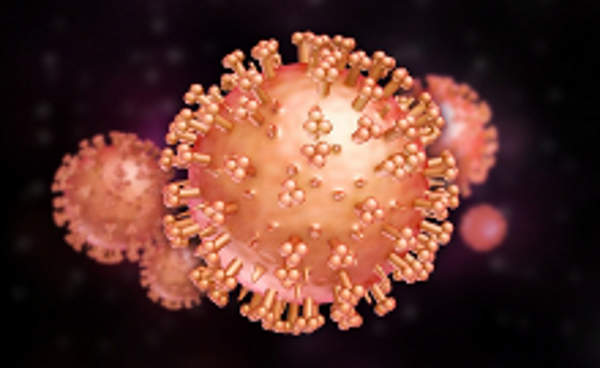
Gilead’s Phase II RSV challenge study of GS-5806 meets primary, secondary endpoints

US-based biopharmaceutical firm Gilead Sciences reported results from a placebo-controlled, Phase IIa challenge trial of its investigational oral RSV fusion inhibitor ‘GS-5806’ in healthy adult patients intranasally infected with respiratory syncytial virus (RSV).

Discover B2B Marketing That Performs
Combine business intelligence and editorial excellence to reach engaged professionals across 36 leading media platforms.
The trial achieved its primary and secondary endpoints of lower viral load, improvements in total mucus weight and also symptom diary score compared to placebo.
The double-blind, placebo-controlled challenge trial was designed to evaluate the effect of GS-5806 on AUC RSV viral load (primary endpoint), as well as on mucus weight and total symptom score (secondary endpoints).
CytoDyn doses first patient in Phase IIb trial of HIV drug candidate PRO 140

US-based biotechnology firm CytoDyn dosed the first patients in its Phase IIb clinical trial, a treatment substitution protocol for patients with human immunodeficiency virus (HIV), with its lead product candidate, PRO140.
The trial’s primary objective is to evaluate the efficacy of PRO 140 monotherapy for the maintenance of viral suppression in HIV patients who are stable on combination antiretroviral therapy, known as HAART (highly active antiretroviral therapy), but need or wish to discontinue HAART therapy temporarily.

US Tariffs are shifting - will you react or anticipate?
Don’t let policy changes catch you off guard. Stay proactive with real-time data and expert analysis.
By GlobalDataThe company said that new therapeutic regimen will potentially allow HIV patients to take a ‘drug holiday’ from their HAART with weekly injections of PRO 140. If the Phase IIb trial is successful, the company intends to evaluate twice-a-month and once-a-month self-injection therapy.
Pfizer’s phase III OPT retreatment trial of tofacitinib meets primary efficacy endpoints
US-based Pfizer reported detailed results from the Oral treatment Psoriasis Trial (OPT) Retreatment study (A3921111), a Phase III trial evaluating tofacitinib, an oral Janus kinase (JAK) inhibitor, to treat adult patients with moderate-to-severe chronic plaque psoriasis.
The three-period trial showed that tofacitinib, as a 5mg or 10mg pill taken twice daily, met its two primary efficacy endpoints.
According to the company, the drug’s safety profile of the drug in OPT Retreatment was consistent with previous studies and there were no new safety findings in the trial.
Eli Lilly reports positive Phase III trial results of lung cancer drug necitumumab
Eli Lilly and Company reported positive results from a Phase III trial of Necitumumab, a recombinant human IgG1 monoclonal antibody, for treatment of first-line squamous non-small cell lung cancer (NSCLC).
The results from the Phase III SQUIRE trial provide the first detailed look at a potential new treatment option for patients with NSCLC.
Necitumumab is designed to block the ligand binding site of the human epidermal growth factor receptor 1(EGFR).
In the trial, patients with stage IV metastatic squamous NSCLC showed significant improvement in overall survival with a median survival of 11.5 months when receiving necitumumab in combination with gemcitabine and cisplatin as a first-line treatment, as compared with 9.9 months for those treated with chemotherapy alone.
Oncothyreon and Celldex to initiate combination immunotherapy cancer trial
US-based firms Oncothyreon and Celldex Therapeutics agreed to collaborate in a combined clinical trial of ONT-10 and varlilumab for treatment of advanced breast or ovarian cancer.
ONT-10 is a therapeutic vaccine targeting the tumour-associated antigen MUC1, while varlilumab is a fully human monoclonal antibody that targets CD27, a critical molecule in the activation pathway of lymphocytes.
In the planned open-label Phase Ib trial, ONT-10 is administered at the recommended single agent dose in combination with varlilumab at two dose levels in 42 patients with advanced breast or ovarian cancer.
Amakem begins Phase II trial for locally-acting rock inhibitor AMA0076 to treat glaucoma

Belgium-based clinical stage ophthalmology firm Amakem Therapeutics dosed its first patients in a Phase II dose-ranging trial of its drug candidate, AMA0076, for treatment of glaucoma.
Based on the company’s localised drug action platform, AMA0076 is a highly potent locally-acting Rho Kinase (ROCK) inhibitor designed to reduce intraocular pressure (IOP) by acting specifically on the main outflow system in the eye while minimising side effects such as hyperemia (red eye).
Approximately 80 patients in the US are expected to be enrolled in the Phase II study with an optimised formulation of AMA0076 applied topically as eye-drops.
Advaxis to begin clinical development of ADXS-cHER2 to treat paediatric osteosarcoma

US-based biotechnology firm Advaxis announced plans to start a clinical development programme with an immunotherapy, ADXS-cHER2, to treat paediatric osteosarcoma.
The company’s product candidate, ADXS-cHER2 targets the HER2 oncogene, which is overexpressed in certain solid-tumour cancers, including paediatric bone cancer and breast cancer.
In a veterinarian clinical trial, pet dogs with naturally occurring osteosarcoma treated with ADXS-cHER2 after the standard of care showed a statistically significant prolonged overall survival benefit compared with dogs that received standard of care without ADXS-cHER2.
Telormedix completes Phase II trial of Vesimune for carcinoma in-situ of the bladder
Switzerland-based biopharmaceutical firm Telormedix completed an open-label Phase II clinical trial, conducted under an IND, of Vesimune (TMX-101) in CIS (carcinoma in-situ) of the bladder.
The trial involved 12 CIS patients recruited from sites in the US to examine the efficacy of Vesimune over six doses.Population in the trial involved both BCG pre-treated and naïve patients with each patient receiving six weekly instillations of Vesimune into the bladder.
Out of the 12 patients, ten were evaluable with four showing a response and three of these were complete responders, so reached the clinical endpoint of complete remission after only one cycle of therapy.





